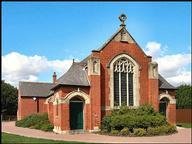Quiz Answer Key and Fun Facts
1. There are four prayer services in the Daily Office. Which of the following is the proper order of services, from the earliest morning service to the last service of the day?
2. The Daily Office makes use of succinct, formal prayers. What are these called?
3. There are 21 "little songs" appointed for use in Morning and Evening Prayer in the 1979 Book of Common Prayer. What are these songs called?
4. Morning Prayer traditionally contains one or more scripture readings. What are these readings called?
5. Which creed is recited during Morning Prayer (and also during baptisms)?
6. In Morning and Evening Prayer, the officiant and people engage in a series of calls and responses. What are these called in the Anglican tradition?
7. What is the response to the versicle "Let not the needy, O Lord, be forgotten"?
8. The Noonday Prayer service contains a collect that begins: "Almighty Savior, who at noonday called your servant ___ to be an apostle to the Gentiles..." Who is missing from the blank?
9. On which day of the week is this collect appointed for use in Morning Prayer? "Almighty God, whose most dear Son went not up to joy but first he suffered pain, and entered not into glory before he was crucified: Mercifully grant that we, walking in the way of the cross, may find it none other than the way of life and peace; through Jesus Christ our Lord." Amen.
10. Which of the following is NOT a collect appointed for use in Evening Prayer?
11. Morning Prayer contains "A General Thanksgiving", which begins, "Almighty God, Father of all mercies, we your ___ servants..." What adjective is missing from the blank?
12. In Morning and Evening Prayer, after the General Thanksgiving, comes "A Prayer of St. Chrysostom". Who was St. Chrysostom?
13. Which of the following is NOT a part of Noonday Prayer?
14. During compline, the officiant says, "Keep us, O Lord, as the ___ of your eye." What word is missing from this verse?
15. What word is missing from this alliterative collect, often used during Compline? "Be present, O merciful God, and protect us through the hour of this night, so that we who are wearied by the changes and ___ of this life may rest in your eternal changelessness; through Jesus Christ our Lord."
16. What word is omitted from the liturgy in the Daily Office during Lent?
17. On which day of the week is this collect appointed for use in Morning Prayer? "Almighty God, who after the creation of the world rested from all your works and sanctified a day of rest for all your creatures..."
18. What word is missing from this alliterative prayer often used in Compline? "Keep watch, dear Lord, with those who work, or watch, or ___ this night, and give your angels charge over those who sleep"?
19. Which service begins, "The Lord Almighty grant us a peaceful night and a perfect end?"
20. What is the response to the versicle, "Create in us clean hearts, oh God"?
Source: Author
skylarb
This quiz was reviewed by FunTrivia editor
looney_tunes before going online.
Any errors found in FunTrivia content are routinely corrected through our feedback system.
